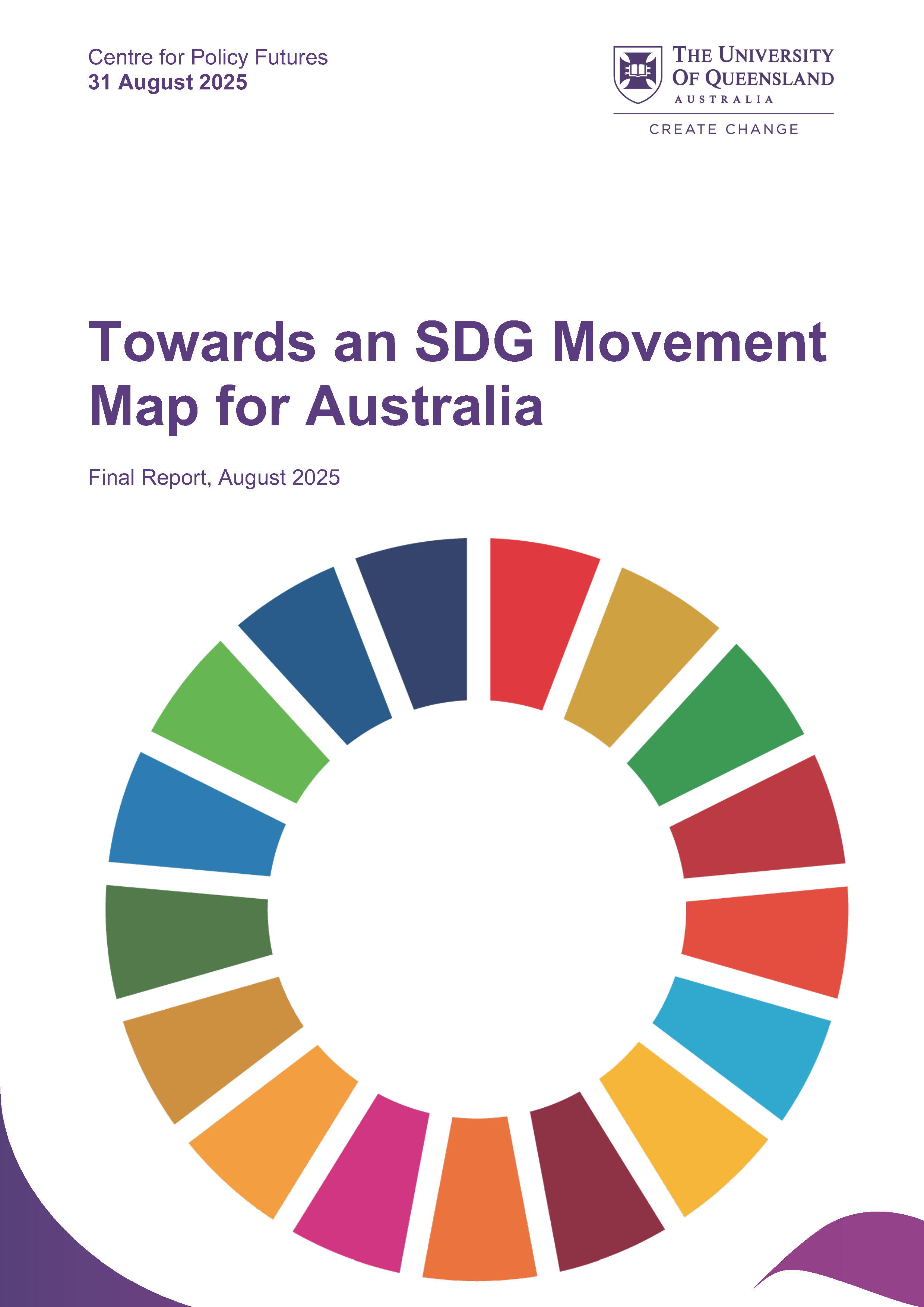Undertaken by Dr Kiah Smith at UQ’s Centre for Policy Futures, and funded by UQ's Centre for Digital Cultures and Societies, this groundbreaking report addresses a critical data gap that has long impeded effective policymaking and constrained the ability of governments and civil society to align and advance sustainability initiatives.
Working across a wide range of sectors, civil society organisations (CSOs) make substantial contributions to address social, economic, and environmental inequalities. They play a pivotal role in advancing Australia’s progress toward the United Nations Sustainable Development Goals (SDGs). Despite growing efforts across civil society, the interconnected nature of the SDGs remains poorly understood and communicated within the sector.
Currently, Australia lacks a comprehensive national SDG monitoring framework that reflects the vital contributions of CSOs - especially in areas related to human rights and coordinated, cross-sectoral action. Without this, the full impact of CSO efforts risks being overlooked in national and global progress tracking.
This report addresses that gap by digitally mapping the SDG ecosystem of Queensland’s CSO-led sustainability activities and their impacts.
Using data from the Australian Charities and Not-for-profits Commission, this study has identified 5,868 registered charities in Queensland. Leveraging AI-assisted tools, researchers analysed publicly available information to map how organisations - particularly those promoting or protecting human rights - align with the SDGs. This digital analysis offers a baseline view of which SDGs are being addressed, their geographic spread, and the extent of cross-goal engagement across the sector.
The pilot SDG Data Observatory for Queensland - the first of its kind in Australia - boosts visibility of CSOs’ contributions to sustainable development. It offers a collaborative platform for data sharing, policy dialogue, and impact reporting, while supporting efforts to localise the SDGs by identifying gaps, fostering partnerships, and improving government policy coherence.
This strengthens Australia’s commitment to the 2030 Agenda by paving the way for future investment in participatory digital infrastructure - supporting sustainability, human rights, and inclusive development. It presents a strong case for national expansion.






